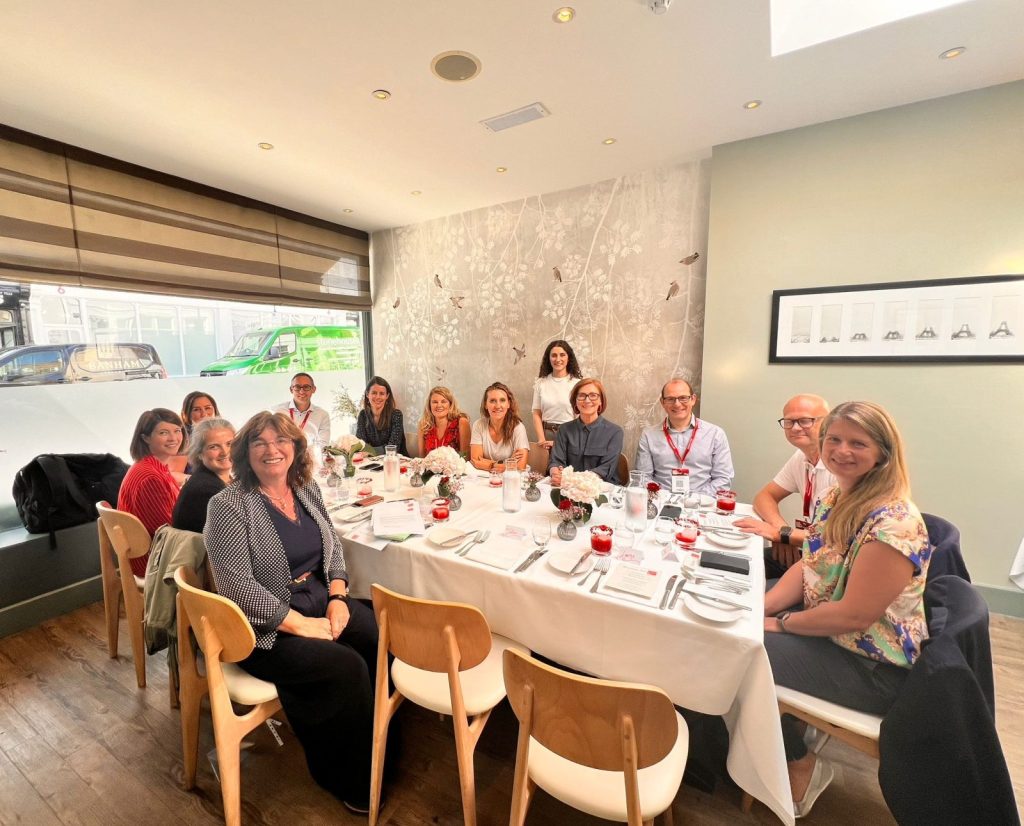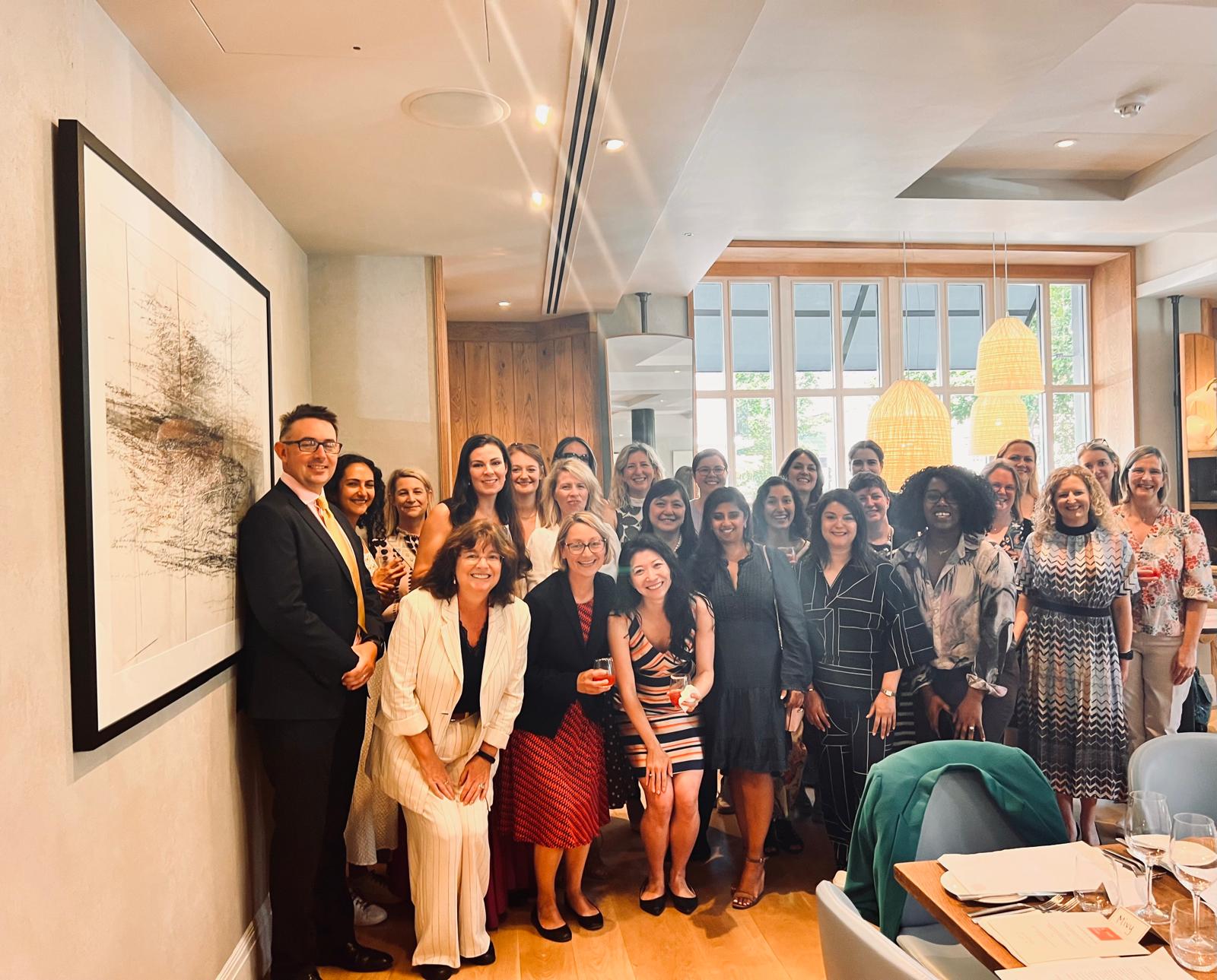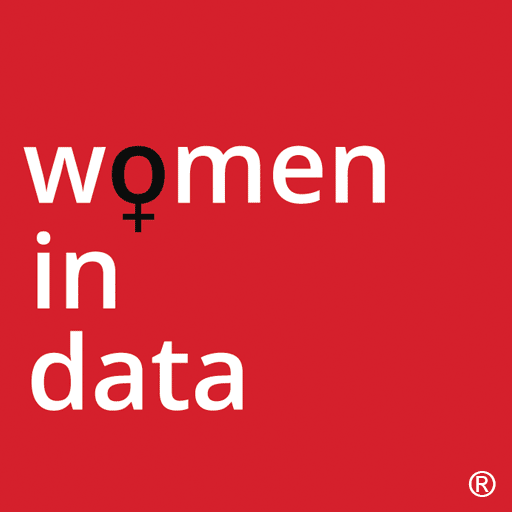 ExecConnect, 18 September 2024
ExecConnect, 18 September 2024
 ExecConnect, 20 August 2024
ExecConnect, 20 August 2024
Before hitting the glass ceiling, women are being tripped up by The Broken First Rung
Abstract
Organisations are failing to meet their own targets for female senior leadership and today 50% of women are still leaving the data and technology sector by the mid-point in their career. The case has already been proven: more senior female leaders are crucial to sparking innovation, driving business performance, fostering inclusion, and attracting top talent. So why are women still tripping over the so-called ‘Broken Rung’ before they even get the chance to shatter that infamous glass ceiling?
We have all heard of the glass ceiling, but fewer understand the crippling impact of The Broken Rung. While men are promoted into leadership positions, women are left clinging to the bottom rung of the ladder. For every 100 men promoted into their first managerial roles only 81 women make it. The result? Women fall behind and simply can’t catch up.
With significantly fewer women joining the industry (stubbornly fixed at 4:1), significant barriers to getting on the leadership ladder and women continuing to leave the industry at an alarming rate, is it any surprise that we see fewer female leaders and an obstinate gender pay gap!
So, how do we break these barriers and accelerate female leadership?
Executive Summary
The persistent underrepresentation of women in senior leadership roles within the data and technology sectors is not just a problem for women. Despite organisational commitments, women are overlooked for promotion right from the beginning of their career journey. The phenomenon, known as ‘The Broken Rung’, means that for every 100 men promoted, only 81 women move up, perpetuating the gender pay gap and stalling female leadership.
Women in Data® has now convened over 60 senior leaders to dissect this issue and push for actionable solutions. Discussions centred on the need for businesses to overhaul their cultures, adopting transparent, merit-based promotion practices and embracing inclusive leadership models. Structural changes, like flexible working conditions and robust family policies, are crucial to support women at all career stages. Additionally, tailored leadership programs should focus on providing women with clear pathways to senior roles, not just be token gestures.
The leaders emphasised that this is not a problem for women to fix – men must step up as allies, and organisations like Women in Data® have a critical role in driving systemic change. The government must also act, tightening gender equity measures and reshaping education to dismantle stereotypes early.
In summary, addressing The Broken Rung is not just about equity. It is about creating a more innovative, effective industry where women can thrive, and everyone reaps the benefits.
Introduction
As part of its ExecConnect series, Women in Data® brought together over 60 senior data leaders from across the public and private sectors, to examine the leadership landscape and explore the options to improve female representation at every level.
The term ‘The Broken Rung’ was new to many, but the phenomenon wasn’t. Almost everyone in the room had seen or experienced it firsthand. The consensus was that ‘The Broken Rung’ is a major roadblock to closing the Gender Pay Gap and keeping talent in the industry.
The group didn’t just want to talk – they wanted solutions. They tackled three core perspectives:
- What do businesses need to do to fix ‘The Broken Rung’?
- How can organisations like Women in Data® help?
- What role should government play in fixing ‘The Broken Rung’?
There was a determination to shift the narrative that Female Leadership was something that women need to fix or ‘that women needed to be fixed’ in order for the situation to change.
They also wanted to shift the mindset around luck. During our session there were several references to women feeling ‘lucky’ to be in senior roles.
Why should women feel “lucky” to be in senior roles? Luck shouldn’t have anything to do with it. Yet, time and again, women attribute their success to a supportive boss, or a stroke of good fortune. This mindset needs to cease. Gender parity and leadership opportunities should be a matter of course, not a roll of the dice.
What do businesses need to do to fix The Broken Rung?
The groups were unanimous: businesses can and must do more. The benefits of female leadership are undeniable – from fresh thought leadership to improved business outcomes and better talent retention. Yet most companies are failing miserably to meet even their own modest targets.
The discussions focused on 3 areas:
Culture shift
If businesses want more female leadership, they need to start with a cultural overhaul. A culture that is inclusive, egalitarian, and truly supportive of women at every level isn’t just a nice to have – it is a must have.
These changes should start at the top of the business and should be communicated clearly at all levels. An interesting insight from the recent Women in Data® State of the National annual report, was that in general women believed that organisations were not doing enough to support women into leadership, yet most men believed that organisations were doing too much. This gap in perception should be understood and addressed to avoid dissatisfaction from both groups.
Transparent hiring and promotion practices are not optional. They are essential. Women should be promoted on potential just like men – not held back until they have over-proved themselves.
The group felt that we are still rewarding outdated, macho leadership traits while overlooking the strengths of more inclusive, empathetic leadership, even though the hiring manual states that these characteristics are the most desired.
Companies should foster a culture of inclusivity by actively challenging gender biases and stereotypes, ensuring that women are seen as equally capable leaders, particularly by those tasked with hiring. One contributor referenced a startling fact from the Young Women’s Trust annual survey that found that 15% of hiring decision makers still think that men are more suited to senior management roles than women.
Mentorship and sponsorship programs specifically aimed at women will help navigate the corporate ladder more effectively. Internal schemes including active sponsorship are highly valued as are external programmes from Women in Data® which provide enriched and innovative perspectives.
Our contributors agreed that making these cultural shifts organisations can create an environment where female leaders can thrive, contributing to more diverse and innovative leadership. This would create additional benefits for talent acquisition and retention, in a time of skills shortage and where data and AI were critical competitive differentiators.
Structural Overhaul
Cultural change won’t stick without structural reform. Businesses must offer flexible work arrangements that go beyond tokenism. Remote work, part-time roles, job shares, flexible/compressed hours should be standard options. These options should be normalised for both men and women and not promoted as perks. And we must stop pretending that offering flexible working is enough – if women’s advancement is being held back through lip serving practices, it’s just another trap.
We need organisations to offer flexible work arrangements and robust family leave policies to support work-life balance, acknowledging that women often face additional challenges in balancing professional, life stage and personal responsibilities.
Other personal health and personal safety and ‘female orientated’ policies should be considered. One contributor mentioned additional support was needed for late night travel for female executives to mitigate and the risk and fear they might experience.
Training & Support
Despite the amounts being spent on Female Leadership programmes, contributors felt that organisations needed to review their provision and ensure that their initiatives were actually having the desired outcomes.
Our contributors did not feel that emerging female data leaders were lacking in confidence or experienced so called ‘impostor syndrome’, at rates significantly greater than men. They universally agreed that women who were knocking on the door of senior leadership, are already hugely resilient and ambitious, having already succeeded in a biased ecosystem.
What they need are clear pathways to progression, real support navigating the corporate minefield, and sponsors who will champion their progression.
They called for more aptitude training for roles and felt strongly that neurodiversity in women should be more understood and accepted.
How can organisations like Women in Data® help?
The contributors did not hold back, they believed that Women in Data® has an increasingly important part to play in the acceleration of female leadership in the data and tech space.
We know already that the entry pipeline is broken with a ratio of 4:1 men to women. We also know that half of women in data and tech will leave the industry by the midpoint in their career and now we are also limited by the broken first rung.
We heard from the contributors that the women leaving the industry were not necessarily leaving the workforce but transitioning into self-employment, other industry sectors or adjacent services like training and coaching.
Beyond current initiatives like Girls in Data, active role modelling through spotlights and The Twenty, recruitment, formal and informal meet ups like ExecConnect and the annual Flagship event, contributors called for three specific interventions from Women in Data®.
Allyship: Mobilise male allies to share the burden of change and use their privilege to sponsor and push for more female leadership.
Training: Offer Leadership Acceleration Programmes that provide a safe space for women to build their brands and networks.Awareness & Advocacy: Drive cultural change at the highest levels of leadership, using Women in Data®’s credibility to push for systemic change.
Our contributors saw the issue of female leadership underrepresentation as one that could only be achieved through cultural and structural changes within organisations – led from the top. They believe that Women in Data® should create interventions at the highest (C-suite) level, informing and supporting cultural change. When asked why Women in Data® should have this responsibility, the view was that the role of data and AI was core to business and our track record and reputation in advocacy and change meant that we would be highly credible in the role.
What is the role of government to fix The Broken Rung?
Government loves to talk about the importance of data and AI to ensure that UK plc can take its place on the global stage. But when it comes to closing the Gender Pay Gap and boosting female leadership, both in government and in industry, progress is crawling at a snail’s pace and in some cases, progress has been reversed.
The contributors felt that measures like Gender Pay Gap and FTSE Board level gender targets need to be tightened. One contributor noted that although board level targets were being met, the seats on the board occupied by women tend to be in the perceived ‘softer’ areas like Chief People Officer and Chief Marketing officer rather than CEO or CFO. The perception is that Gender Pay Gap measurement is a blunt instrument and the data collection and analysis methods left it open to misinterpretation and misuse.
More needs to be done in education to encourage and inspire girls to consider subjects that will enable them to pursue careers in data and technology. Schools must also step up to dismantle gender stereotypes before they take root. If girls are not encouraged to pursue careers in data and tech, the pipeline will remain broken. Alongside this, information and support for teachers and parents would help eliminate biases that start at home and from earliest school age.
More legislation and support around caregiving, childcare, parental rights plus financial support would ensure that more women would feel able to continue their careers.
Conclusion
The world of data, AI, and technology should be a place where women don’t just survive – they thrive. To unlock the full potential of these industries, we need to make sure women can apply their talents without facing constant obstacles. Fixing ‘The Broken Rung’ isn’t just about helping women; it’s about overhauling a broken system that’s failing us all.
Acknowledgements
We are grateful to Polly Scully CBE from Palantir Technologies and our partners at Cap Gemini and Snowflake for their unwavering commitment for our ExecConnect programme. Also to Rebecca Mascarenhas, co-owner of the Michelin starred 43 Elystan St, and the team at Michelin starred Kitchen W8 for their support and hospitality. Eternal thanks to our contributors, without whom we would not be able to create this discussion document. We have barely scratched the surface in terms of the topics covered and the insights provided. We have banked all your ideas and they will form part of our ongoing thought leadership on this topic.
If you have anything else to say, would like to contribute further to the discussion or would like to hear more of our role modelling and leadership initiatives, contact Hello@womenindata.co.uk
About Women in Data®
Women in Data® is a movement and a force for change in data, tech and AI.
Women are hugely under-represented across STEM fields, and the Data industry is no exception –male analysts and data scientists outnumber their female colleagues 4 to 1. Addressing this imbalance isn’t just the right thing to do ethically. Data shows that everything from workplace satisfaction, to business profitability significantly improve when an organisation strives for greater diversity and inclusivity. Women in Data® plays a key role in driving for more accurate representation wherever data is being gathered and analysed.
We provide the platform that allows professionals at all levels to share their knowledge and experience, while working alongside businesses to help them embrace and develop the enormous advantages generated by diversity.
The changes we’re affecting are cultural and systemic. Offering everything from professional networking and knowledge transfer to our Women’s Health Commission, Women’s Safety Commission and Girls in Data initiative. Partnering with Women in Data® brings fantastic organisational, reputational and commercials benefits.
Our work is creating measurable impact for the partners we support and the community we host.
About ExecConnect
ExecConnect is a new initiative from Women in Data® enabling us to bring together leading figures from the Data, Tech and AI communities. The objective is to connect the most senior leaders to each other for networking opportunities and support, and to gather insights and thought leadership as we close the leader equity gap in our industry.
ExecConnect events run throughout the year and have either an industry sector focus or are designed around specific topics. Your participation helps us to test our thinking and use your experience to refine our propositions and build stronger Women in Data® points of view.
If you would like to participate at an ExecConnect or sponsor a session, please contact Hello@womenindata.co.uk for further information.
